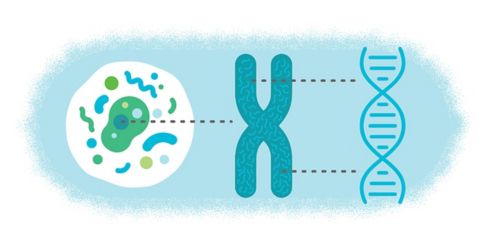St. Jude Family of Websites
Explore our cutting edge research, world-class patient care, career opportunities and more.
St. Jude Children's Research Hospital Home

- Fundraising
St. Jude Family of Websites
Explore our cutting edge research, world-class patient care, career opportunities and more.
St. Jude Children's Research Hospital Home

- Fundraising
Clinical research: Understanding the importance of nursing in precision medicine

Precision medicine is changing the role of nursing in assisting patients and their families.
Nurses play an important role in helping patients and their families understand and make an informed choice regarding clinical research. That is particularly true when the research involves whole genome sequencing (WGS) and other types of clinical genomics.
“Precision health care is rapidly changing,” said Belinda Mandrell, PhD, RN, St. Jude Nursing Research director. “Nursing must meet the challenge and leverage the profession in this evolving health care environment.”
Nurses are key to educating and facilitating patient recruitment in clinical trials. Nurses also share information with their colleagues, she explained. However, many health care professionals, including nurses, report real or perceived deficits in their knowledge of genomics and the practice of precision health care.
“Nursing should stay abreast of ongoing clinical and translational collaborations,” Mandrell said.
At St. Jude, clinical research offers nurses opportunities to engage with parents and patients. As an example, she cited Genomes for Kids (G4K). The clinical study explores similarities and differences between tumor cells and healthy cells in children with cancer. Nurses promote the benefits of genomic testing for their family and for others, while respecting the decision-making process. When patients and families are invited to take part in G4K, parents report feeling an obligation to participate, Mandrell said. Parents want to understand the risks associated with genetic predisposition. They also want to support research that could help other patients and families.
While genomic discoveries are a primary objective of G4K, Mandrell said it is also important to generate and analyze how patients and families understand the results and how best to provide the information. Additional research is needed to assess how the results affect patients and families.
St. Jude has done several studies looking at best practices regarding informed consent, barriers to clinical genomics research participation, and challenges for parents in understanding and emotionally processing clinical genomic test results.
By understanding family concerns, nurses can assist families more effectively. Such information helps nurses ease those concerns and communicate genomic results. The knowledge should bolster their role in the era of precision medicine.






